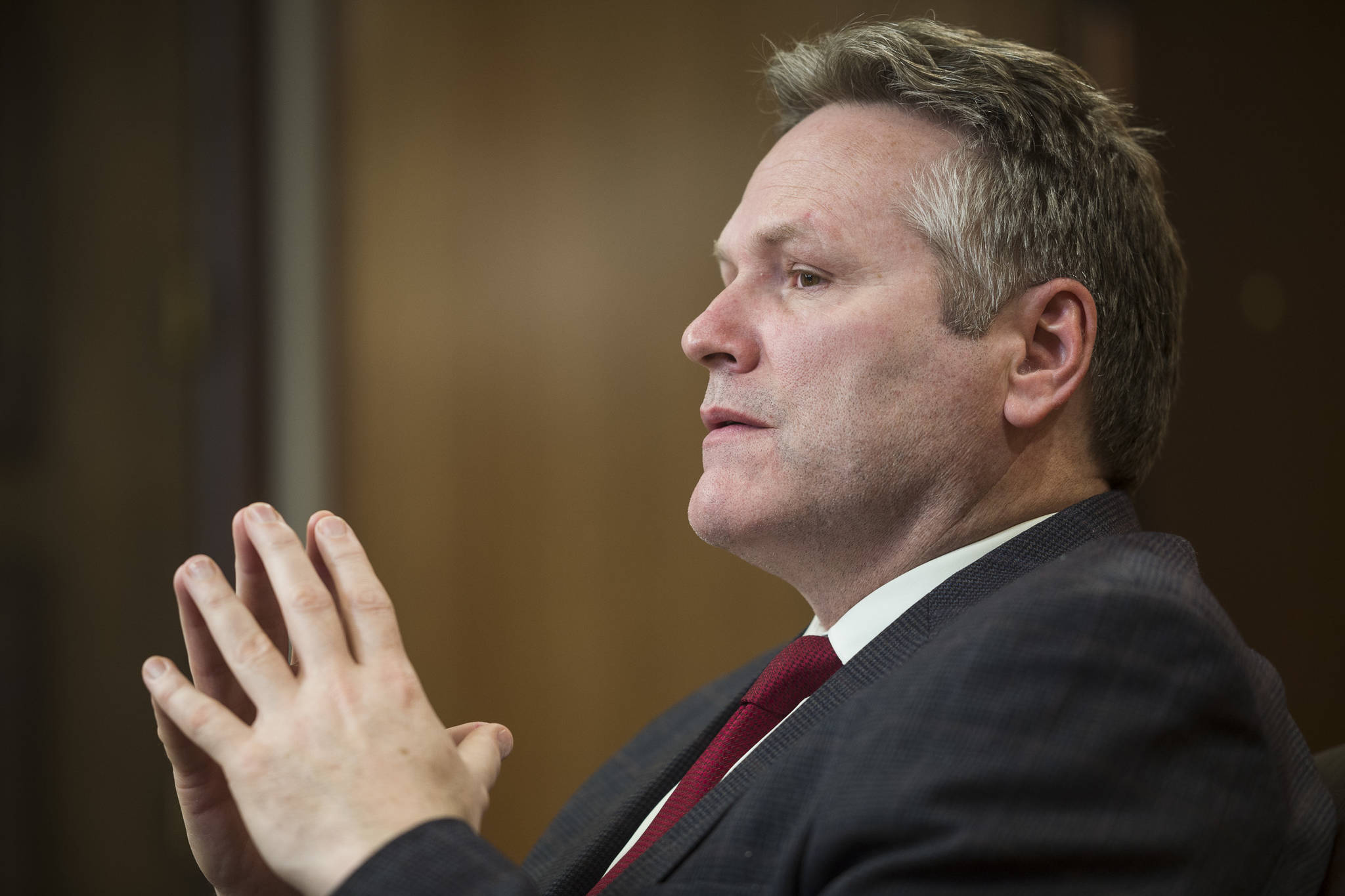For those who bemoan — and criticize — the fact that the state has drawn on savings to the sorry tune of almost $16 billion over the past six years, I have a fact to share: Yes, the recent budget deficit numbers are bigger, but the problem is nothing new. The state has drawn on its savings most of the past three decades.
We just don’t pay our own way. We eat at the restaurant of public services, enjoy our pick from the menu, then walk out without paying, assuming our parents will cover the tab.
For a state that prides itself on sustained yield of its fisheries resources and promotes our commitment to sustainable development, we haven’t been self-sustaining on a consistent budgetary basis since the late 1980s when North Slope oil production peaked at two million barrels a day.
[Opinion: Taxes are the only way to boost Alaska’s economy]
We have avoided the obvious, ignored the math, and pretended — or hoped — that the day of reckoning was only a biblical theory, not a mathematical certainty.
Though the budget numbers are bigger today, the deficit has been worse. The math was so bleak in fiscal 1999 that the state drew money out of the Constitutional Budget Reserve Fund to cover about 40 percent of the general fund budget. Then oil prices recovered and far too many candidates told us the crisis was a mirage.
Today’s budget isn’t the result of out-of-control spending on public schools, early childhood education, foster care, Medicaid, the state ferry system, Pioneer Homes for our seniors, Village Public Safety Officers or anything else threatened by the governor’s proposed budget cuts for the fiscal year starting July 1.
[Opinion: Stop oil and gas tax credits, money for wealthy and invest in Alaskans]
Today’s budget dilemma is because too many of us refused to believe the math. Over the years, too many candidates saw political gain from telling voters that either oil or “right-sized government spending,” or both, would save us. And all the while promising to “defend the Permanent Fund Dividend.”
In an interview with Alaska public radio earlier this month, Gov. Mike Dunleavy said: “I believe that the sooner we get out of this fiscal mess, the better it will be for the economy.” Yes, many Alaskans have been saying that for the past quarter-century but, sadly, they were politically outnumbered.
“We just seem to be putting off the inevitable,” the governor added. On that point, he is right.
Our inevitable choices are clear.
[Opinion: Gov. Dunleavy follows through on campaign commitments]
We can cut spending so deep that we eliminate the budget deficit but devastate the public- and private-sector economy by shedding thousands of jobs, driving people to leave the state, diminishing the health and well-being of tens of thousands of adults and children, weakening our public schools and universities, and telling the world that we would rather deny ourselves a future than pay for it.
We can irresponsibly write ourselves the biggest Permanent Fund Dividend checks in history, or we can responsibly use some of our own money to buy a stronger future for all.
An Alaskan can buy a lot of things with a $3,000 dividend, but individually they cannot buy a middle school, a university classroom, a rural airport or care for the elderly. However, Alaskans, collectively, can use Permanent Fund earnings and taxes to do all those things. That’s how a community functions. It’s how cities and states and service groups and churches and entire nations work. Individuals band together for the good of many.
[Budget would have ‘dire impact’ on Juneau economy]
There is nothing immoral, unconstitutional, reprehensible or destructive about taxes. They are a way to provide and preserve livable communities.
Alaskans like to quote and misquote the state constitution about oil resources and the Permanent Fund. But you seldom hear anyone quote Article 1, Section 1.1, which says: “… all persons have corresponding obligations to the people and to the state.”
“One of the ‘corresponding obligations’ is that of paying taxes should the Legislature impose them,” the Alaska Supreme Court said in a 1983 ruling.
Our finances are a mess from years of over-reliance on oil dollars and under-reliance on ourselves. Therefore, I suggest we undertake a year-long process to look at all existing and potential taxes, including taxes on individuals and all industries (yes, all). It’s time to decide how everyone can share in the cost of an economically healthy state. It’s time to put everything on the table, including a realistic Permanent Fund Dividend and taxes. We’ve been eating at the buffet for years — it’s time everyone helped pay the bill.
• Larry Persily is a longtime Alaska journalist and was deputy commissioner of the Alaska Department of Revenue from 1999-2003. My Turns and Letters to the Editor represent the view of the author, not the view of the Juneau Empire.

